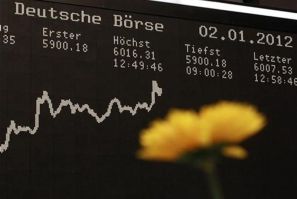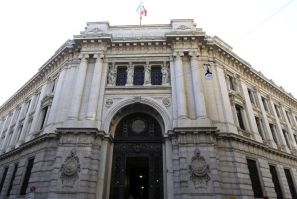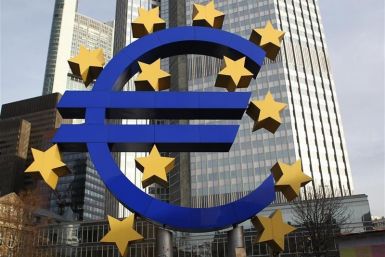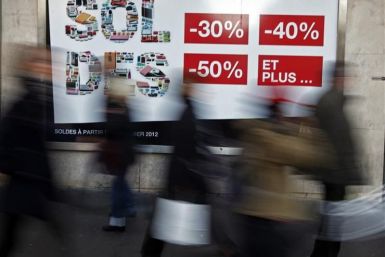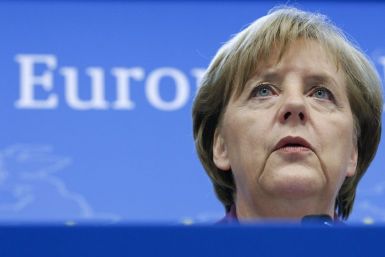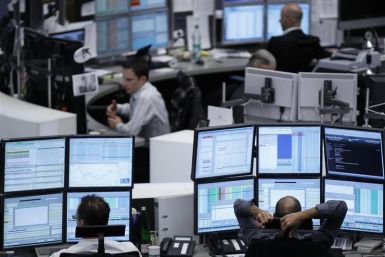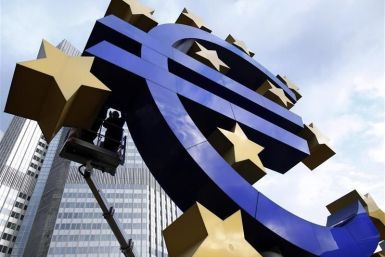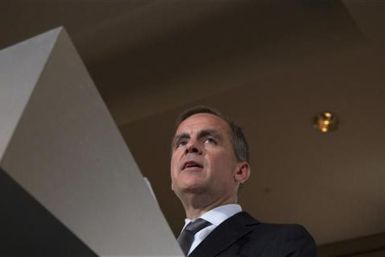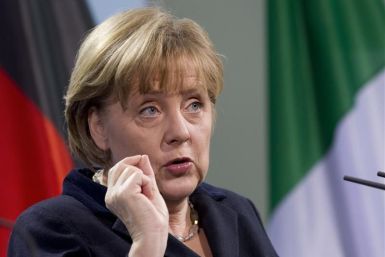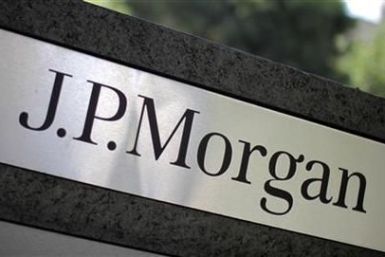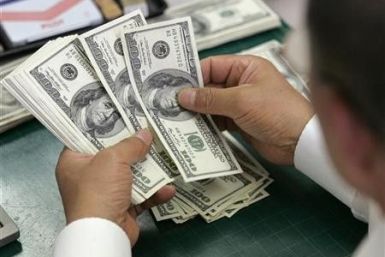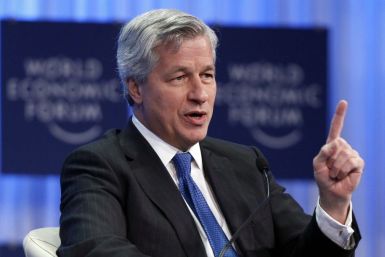European banks are preparing for a potential worsening of the region's sovereign and banking crisis, with many firms stockpiling cash and cutting back on loans to new clients as they seek to protect themselves against a possible seizing-up of financial markets.
Spain passed its biggest test of market sentiment so far this year on Thursday, selling far more longer-term debt than expected as the government pressed ahead with efforts to tackle its problems with the help of a European Central Bank backstop.
A German sale of 3.44 billion euros of two-year bonds saw strong demand on Wednesday as concerns over Greece led investors to stock up on safe-haven debt, while Portuguese treasury bills benefited from ample liquidity in the financial system.
German Investor confidence rose sharply in January as cheap, long-term loans provided by the European Central Bank soothed the financial markets, suggesting that the economy is stabilizing.
Consumer prices in the Eurozone fell more than previously expected in December, the start of a retreat from a November peak that should give the European Central Bank more room to cut interest rates as the economy heads for recession.
Spain sold 4.88 billion euros ($6.18 billion) of 12- and 18-month T-bills on Tuesday, passing the first test of market appetite for its debt since a two-notch sovereign rating downgrade on Friday.
Asian shares inched higher and the euro stayed above a 17-month trough Tuesday as investors focused on economic data from China to gauge the impact of the eurozone debt crisis on global growth.
Germany, the only major eurozone member to retain a top-notch credit rating, refused Monday to consider boosting the bloc's rescue fund, while Greece was under pressure to urgently break a deadlock in debt swap talks if it is to avoid an unruly default.
Canadian stocks were slightly higher on Monday, as gains by energy and mining issues offset lower financials, while investors largely shrugged off last week's euro zone ratings downgrades.
An exit from the euro by Greece appears likelier by the day.
Greece must urgently break a deadlock in debt swap talks triggered by unreasonable demands from its partners, the head of a group of representing its private sector warned on Monday, as Athens raced against the clock to prevent an unruly default.
Greece must urgently break a deadlock in debt swap talks triggered by unreasonable demands from its partners, the head of a group of representing its private sector warned on Monday, as Athens raced against the clock to prevent an unruly default.
Greece must urgently break a deadlock in debt swap talks triggered by unreasonable demands from its partners, the head of a group of representing its private sector warned on Monday, as Athens raced against the clock to prevent an unruly default.
Standard & Poor's credit rating downgrades of nine Eurozone countries will fuel attempts by European Union lawmakers to slap stricter curbs on sovereign ratings.
Commercial banks parked almost half a trillion euros at the European Central Bank, the highest on record, as the mix of debt crisis worries and a recent giant injection of ECB cash left banks awash with money but too scared to lend it.
Euro zone bank shares fell but stocks seen as resilient to an economic slowdown gained on Monday in the wake of Standard and Poor's mass downgrade of euro zone sovereign ratings, while the euro hovered near 17-month lows against the dollar.
The European Central Bank will do all it can to calm the situation after Standard & Poor's downgraded several euro zone members' debt ratings in the past week, ECB Governing Council member Ewald Nowotny said on Sunday.
Financial Stability Board Chairman Mark Carney on Sunday rejected calls from the banking industry to delay planned tougher capital rules for lenders, saying such a move would not spur strong growth.
European leaders promised on Saturday to speed up plans to strengthen spending rules and get a permanent bailout fund up and running as soon as possible, a day after U.S. agency S&P cut the ratings of several euro zone countries' creditworthiness.
JPMorgan Chase & Co could lose up to $5 billion from its exposure to Portugal, Ireland, Italy, Greece and Spain, Chief Executive Jamie Dimon said in an interview with Class CNBC, carried in Italian newspaper Milano Finanza on Saturday.
Stock investors will return to a tug of war between signs of domestic strength and overseas concerns next week as a batch of critical earnings reports look to add credence to the idea the economy is improving, while credit rating downgrades in Europe will keep that region's difficulties in view.
JPMorgan Chase & Co. could lose as much as $5 billion due to its exposure to sickly Portugal, Ireland, Italy, Greece, and Spain, CEO Jamie Dimon said in an interview with Class CNBC, which was carried in the Italian newspaper Milano Finanza on Saturday.






